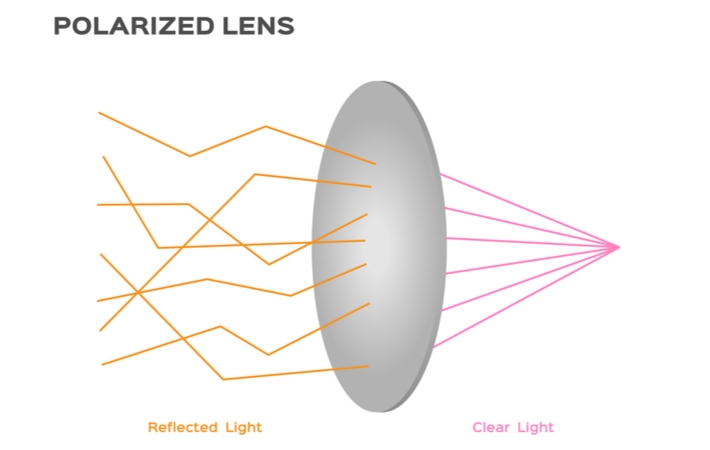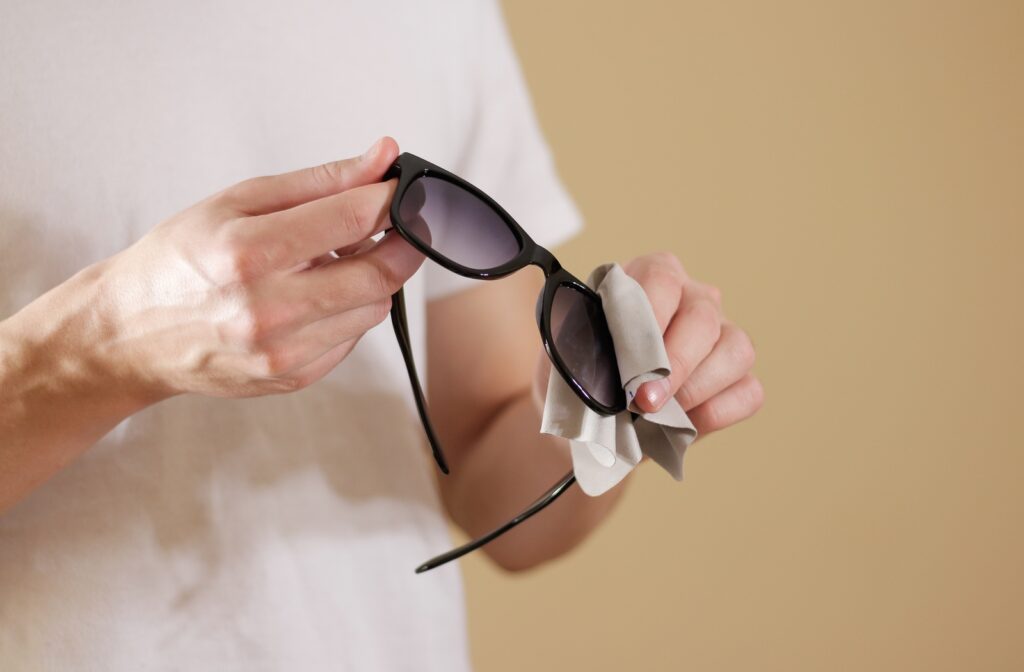How to Clean Polarized Sunglasses
Protecting the longevity of polarized sunglasses can help you retain the benefits of their use for a longer period of time. Proper cleaning and storage of your sunglasses lead to them performing better and lasting a much longer time — this is especially important if you have purchased an expensive pair. Our team at Precision Eye Care can help get you the information that you need to properly take care of your polarized sunglasses and provide you with the tools you need to be successful.
Contact us if you have any questions or concerns — we are more than happy to help.
What Are Polarized Sunglasses?
Polarized lenses are designed to reduce glare from surfaces and prevent eyestrain in bright conditions. Sunglasses with polarized lenses can help prevent potentially dangerous situations that can occur due to blinding glare and improve your vision when you are out in the sun.
The lenses in polarized sunglasses have a special chemical coating that allows them to filter light in a specific way. The filter created by the coating ensures that there are vertical openings for light to pass through the lens, but all horizontal light waves will be blocked. Horizontal light waves will typically occur when viewing reflections of light created by certain shiny or smooth surfaces (e.g. the surface of a lake).
Due to this type of filtering, images and objects seen through polarized lenses will appear to be darker compared to your naked eye and non-polarized lenses. Images and objects will also look a bit crisper and details will be easier to discern when wearing polarized lenses vs. non-polarized lenses.
The Benefits of Polarized Sunglasses
Normally, light will scatter in many different directions when reflected off of an uneven surface, but if the surface is smooth light will reflect at essentially the same angle. This type of uniform light wave is called glare and makes viewing the world around us difficult in bright conditions. It can make things like driving and biking dangerous without the proper equipment; polarized sunglasses are a solution to glare and the issues it causes.
Some situations where polarized sunglasses may be especially helpful are:
- Fishing — polarized sunglasses can drastically cut the glare from the water’s surface and help when trying to see into the water.
- Boating — long days spent on the water can lead to eyestrain. Polarized lenses can help reduce the chances of developing eyestrain and can eliminate glare from the water’s surface while boating.
- Golfing — some golfers find that polarized lenses reduce glare on fairways, and can be removed when putting for a more accurate shot.
- Activities in the snow — snow causes quite a bit of glare, so using a pair of polarized sunglasses when you are out in snowy conditions is usually a good choice.
Keep in mind that not all polarized sunglasses are also UV protected — make sure that you purchase polarized sunglasses that also have UV protection coating for the best safeguard for your eyes.

How to Properly Clean Polarized Sunglasses
Cleaning polarized sunglasses is essentially the same as cleaning sunglasses with regular lenses. The manufacturer of the lenses may have some specific tips for cleaning their brand of polarized lenses, so it is a good idea to employ those techniques if it is applicable to your sunglasses. Also, you should follow any advice your eye doctor gives you about cleaning your sunglass’ frames and lenses.
Generally, when cleaning your lenses you should:
- Wash your hands thoroughly beforehand to ensure that you are not transferring germs from your hands to your glasses.
- Run warm water over your glasses — this gets rid of dust and other particles that might scratch the lenses and cause damage. If there’s only hard water in your home, use distilled water instead of water from the tap.
- Wipe your glasses with a microfiber cloth.
- Spray your glasses on both sides with a special glass cleaning solution.
- Dry your glasses off by shaking off excess water droplets or using a canned air cleaner.
Some general cleaning tips for frames are:
- Run the frames under warm water and use a mild soap to clean the surface.
- Continue to rinse the frames thoroughly under warm water until the soap is gone.
- Clean the nose pads and earpieces of your frames with a moist wipe and rubbing alcohol.
Things to Avoid While Cleaning Polarized Sunglasses
There are a few common mistakes when cleaning glasses that people make that can potentially harm the integrity of eyewear. Avoid using these materials and doing these things to ensure the longevity and functionality of your polarized sunglasses:
- Paper towels, fabric from your shirt, and tissues are not recommended for cleaning your glasses. These materials are too coarse and can cause scratches and other damage to the surface of your lenses. The best material to clean your polarized sunglasses with is a microfiber cloth — most eyewear comes with a free microfiber cloth.
- Another thing to steer clear of when cleaning your polarized glasses is acetone. This chemical is usually found in nail polish, and should not be used to clean your glasses as it can be destructive to lenses and plastic frames.
- Do not use saliva to get rid of smudges, dirt, and dust from your glasses. Most of the time it does not have the desired results of proper cleaning and you essentially just end up covering your glasses in germs.
Before considering how you should properly clean your glasses, it is also important that you are storing them in the case that was provided with them properly. If you are not storing your glasses properly, there is a much higher chance that they will become dirty or damaged over time, and if you are unsure about specific care instructions for your lenses, feel free to reach out to our helpful staff at Precision Eye Care.





